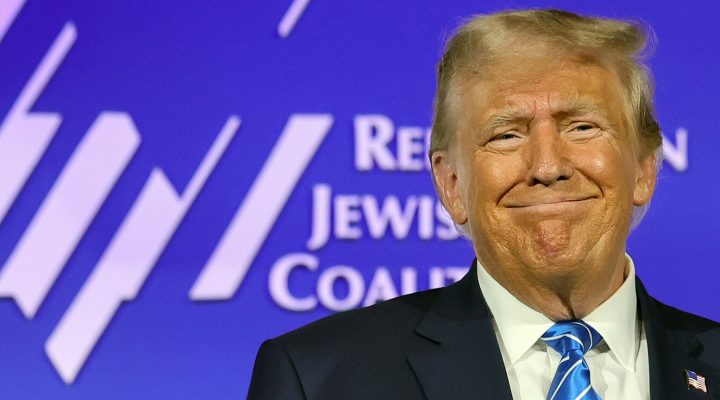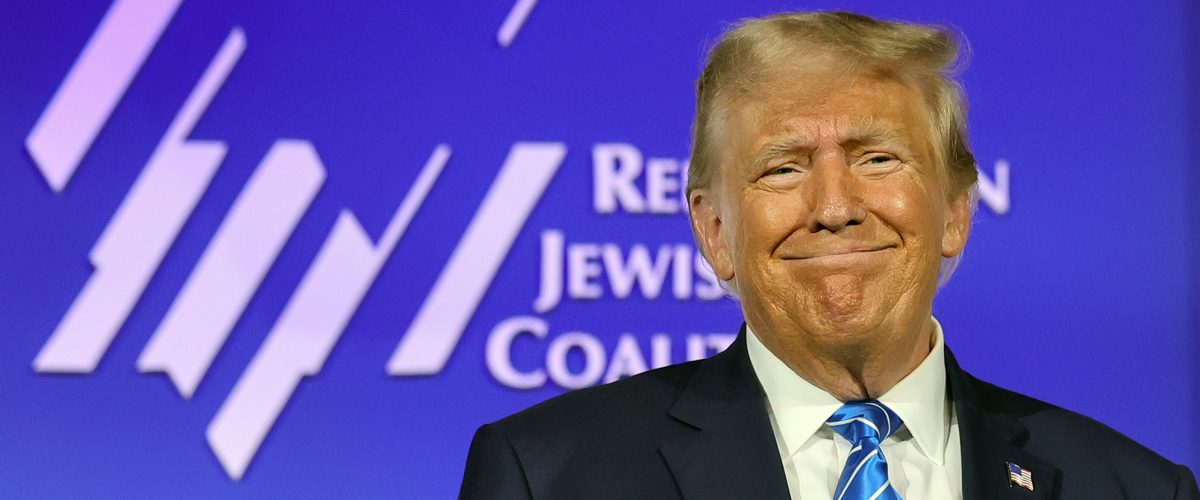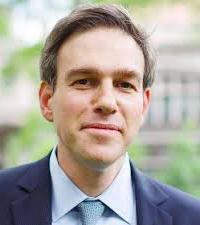The 2024 presidential election may have uncovered a shift in American Jewish voting trends due to the political fallout from the Israel-Hamas war, pollsters and other experts have observed.
While Jewish voters backed Democrat Kamala Harris over Republican Donald Trump 71% to 26% in November, her margin of victory was as much as 11 points less in some surveys than Joe Biden received in 2020, according to the Jewish Electorate Institute.
“Nearly all Jewish voters (87%) describe themselves as pro-Israel, with most supporting Harris. However, Trump won among those who identify most strongly with Israel and who cited Israel as a key reason for their support,” according to a report from the group.
JEI’s post-election survey of 1,093 Jewish voters exposed substantial disparities across denominational identity, with Reform (84%), Conservative (75%), and nondenominational Jews (70%) voting for Harris, and various Orthodox groups (74%) favoring Trump.
Trump’s Jewish supporters favorably cited his strong opposition to Iran and stances on immigration and the economy. Jews who voted for Harris expressed concern about Trump’s threat to democracy and her defense of abortion rights.
But Trump’s victory, and some of his subsequent cabinet appointments, have sparked national and international conversations about the meaning they hold for Jewish Americans and Israel.
“In the aftermath of the election there remains contention about the degree to which — if any — Jewish voters, who overwhelmingly vote for Democratic candidates, have begun to shift toward the Republican Party. But it’s clear that American Jewish politics are at a turning point,” according to Jewish Insider coverage of an expert panel hosted last month by the Orthodox Union Advocacy Center.
The Orthodox Union’s research found two-thirds of Jewish voters identified the October 2023 Hamas attack on Israel and the resulting war in Gaza as significant factors in their voting, said panelist Nathan Diament, executive director of the advocacy center.
“Jewish voters showed consistently that Harris was receiving lower levels of support in the American Jewish community than the Democratic nominee would typically receive. This was a very unique election for American Jews in terms of Oct. 7 and also what happened here in the U.S., the surge of antisemitism,” he explained.
It remains to be seen how Trump will approach the rise of global antisemitism and Israel’s battles with Hamas and Iran, said panelist and New York Times columnist Bret Stephens.
However, the president-elect’s selections of U.S. Sen. Marco Rubio for secretary of state, New York Rep. Elise Stefanik for U.N. ambassador and Florida Rep. Mike Waltz for national security adviser may be “hints of an answer.”
As good as some selectees may be for Israel’s security, the picture isn’t as bright for Ukraine and other U.S. allies, Stephens added. “We’re pretending that Ukraine’s fight is Ukraine’s alone, that Israel’s fight is just Israel’s fight, same with Taiwan. But we are moving in the same direction as we were before the second World War. I’d like to see a president surrounded by fairly sober leaders who understand just how big the stakes are today.”
Meanwhile, the response to Trump’s victory and the anticipated makeup of his national security circle from some Israeli government officials has been “enthusiastic,” Jewish Insider reported.
Israeli Foreign Minister Gideon Sa’ar raved about Rubio’s appointment: “We’re talking about someone who is not only a firm friend of Israel but has a consistent track record on the major issues of the day.”
On X, Idit Silman, Israel’s minister of environmental protection, lauded Rubio and Waltz for clear thinking and “moral clarity. This is good news for the free world and the state of Israel. I also call on the Israeli left to rise from its mourning over Trump’s victory, and to congratulate these excellent appointments.”
Some high-profile Jewish organizations also congratulated Trump on his victory and said they anticipate working with this administration on issues critical to Israel and Jewish Americans.
“The global Jewish community continues to reel from the horrific Hamas attack on Israel of Oct. 7, 2023, the ensuing surge of antisemitism, the sustained campaign of Hezbollah attacks that started on Oct. 8, and Israel’s seven-front defensive war against the radical Iranian regime and its terror proxies — all while Iran continues its dangerous pursuit of nuclear weapons,” the Jewish American Committee said. “The conflicts we are currently seeing around the world reflect a dangerous collusion among anti-democratic regimes and non-state actors. The U.S. must exert clear global leadership and be a stabilizing power as the world contends with these many threats.”
The organization reminded the president-elect and his advisers of its cooperation with Trump’s previous White House tenure. “AJC strongly supported America’s long-overdue recognition of Jerusalem as Israel’s capital and welcomed President Trump’s December 2019 executive order to strengthen efforts to combat antisemitism on college and university campuses.”
The American Israel Public Affairs Committee said it anticipates working with the administration and congressional Democrats and Republicans on refortifying the relationship between the U.S. and Israel: “Despite the current profound political polarization, there remains a resolute bipartisan commitment to the U.S.-Israel alliance.”
The Orthodox Union expressed eagerness to work with the incoming Trump administration in countering antisemitism in the U.S., solidifying U.S.-Israel cooperation, defeating Hamas, Hezbollah and Iranian aggression.
“With campaigning now over, we look forward to working with all Americans to mend the divisions in our society and bring the country together to overcome the current challenges we face” including “expanding educational opportunity and choice for all American children and defending America’s ‘first freedom’ of religious liberty,” the union said.
Related articles:
Conservative Christians do not have sole ownership of religion, Jewish scholar says
American Jews favored Harris over Trump, don’t support Netanyahu either
Heritage Foundation’s antisemitism effort ignores Jewish groups






